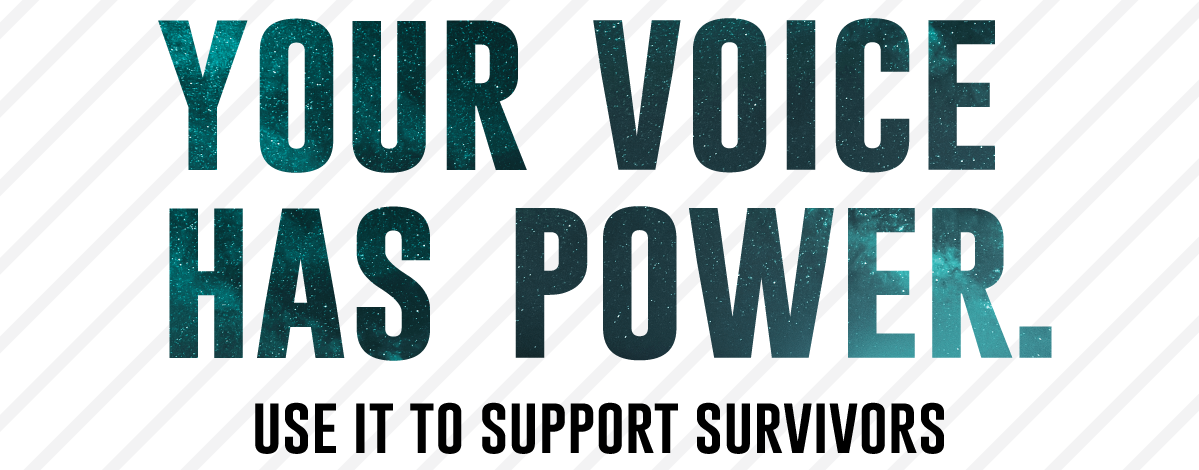
Georgia Tech recognizes that no one person can single handedly stop sexual violence. This is an issue for our whole community. Find out more below about how you can help prevent sexual violence, learn about consent and other key terms listed on the side menu.
Sexual Violence
Sexual Violence is an umbrella term that includes any form of unwanted sexual attention, contact, or activity. In this book you'll find more information about some of the most common forms of sexual violence.
Intent vs. Impact
Sexual harassment is assessed based on the impact it has, not the intention. An individual may not intend to harass the victim, but if the victim feels uncomfortable then the behavior can be seen as sexual harassment.
Facts and Statistics
In order to confront the issue of sexual violence, it is important to understand just how pervasive it is on college campuses and in our larger culture.
We know that approximately 1 in 5 women and 6% of men experience sexual violence while in college. 80-90% of cases perpetrated against college women are committed by someone they know (partner, friend, classmate), and it usually happens in the privacy of a residence. While the majority of perpetrators of sexual violence are men, only a small percentage of men are responsible for the majority of cases of sexual violence on college campuses (about 6% of men, who are often repeat perpetrators).
We know that sexual violence is a vastly underreported issue, for a number of reasons. Most survivors never formally report their experience, but they do often share it with someone they trust, such as a friend. As long as sexual violence impacts members of the Georgia Tech community, it impacts all of us.
GET HELP
Have you experienced sexual violence or have questions related to victim-survivor support, referrals, accommodations, and reporting options and need to speak to a VOICE Advocate?
For confidential support contact us at 404.894.9000 24 hours per day.
Appointments are available for individuals affiliated with Georgia Tech.
Prevention
Sexual Violence prevention means that a situation is stopped before it escalates to sexual violence. Often, society views preventing sexual violence as actions that a potential victim can take to protect themselves. We instead want to shift to actions that our community can take to prevent a perpetrator from committing violence in the first place. At Georgia Tech, we take a community approach to preventing sexual violence, rather than targeting individuals as potential victims or perpetrators. This means challenging a culture that allows sexual violence to continue in our campus community. We believe that everyone has a responsibility to look out for each other, support each other, and hold each other accountable for their actions. Bystander intervention is one way to achieve this.
Often when people think of bystanders, they think of the bystander effect - the phenomenon where the more people who witness a potentially harmful or dangerous situation, the less likely any individual is to intervene. The continued safety of our community requires all of us to commit to being pro-social bystanders. Pro-social Bystanders recognize a situation and seek safe and effective means of intervention. These intervention strategies range from directly confronting the situation or delegating the task to someone more qualified. Only a very small percentage of people commit sexual violence, but we are all part of a community where it is happening. At Tech, we use the 4 D's to talk about bystander intervention:
- Direct- when you feel safe and comfortable, you address the behavior directly
- Distract- when you use a distraction to pull someone away from harm or from harming another
- Delegate- when you bring others attention to harm that is occurring and decide as a group how to intervene or when you call an authority
- Delay- when you provide support after your suspect harm has occurred
For more information and to request a training about bystander intervention, contact VOICE at voice@gatech.edu. To learn more about sexual violence prevention and bystander intervention skills, attend a Bystander Intervention Training, offered every semester request a workshop on any VOICE topic.
Risk Reduction
We often think of behaviors such as walking in groups and not accepting drinks from strangers as ways to prevent sexual violence. The truth is, those behaviors do not stop an act of violence from happening. Rather, they reduce the chance that something will happen. It is important to make the distinction between risk reduction and prevention because when risk reduction behaviors are seen as prevention, it puts the responsibility of stopping sexual violence on the victim instead of the perpetrator. Risk reduction behaviors include, but are not limited to:
- Walk in groups
- Don't walk alone at night
- Cover your drink at parties
- Carry pepper spray
We do not want to discourage people from utilizing risk reduction strategies if they so choose. Often the comfort of knowing you have put in place some safety strategies can help increase enjoyment or decrease anxiety. The challenge is for our community to not rest on risk reduction as the ultimate solution sexual violence.
More Information
Check out these CDC Fact Sheets to learn more: About Sexual Violence, and About Intimate Partner Violence.
To learn more about the status of sexual violence at Georgia Tech, check out the Georgia Tech Annual Campus Safety and Security Report.